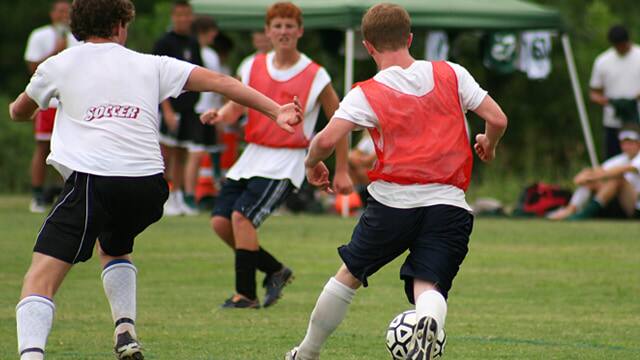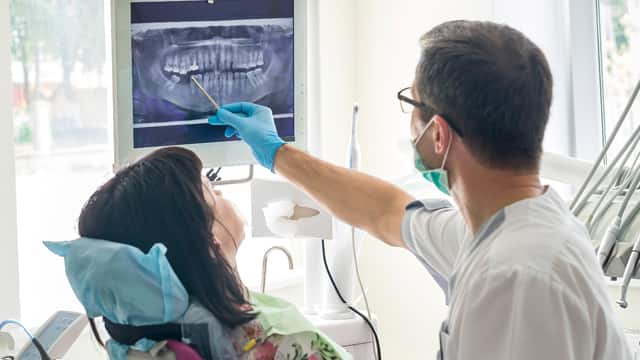-
-

FLUORIDE
What Is Stannous Fluoride Toothpaste?Discover what is Stannous Fluoride Toothpaste and its importance to prevent cavities and other oral health problems.

TEETH WHITENING
Whitening toothpaste - hydrogen peroxide vs. carbamide peroxideIf you lose one or more of your front teeth due to injury or decay, you may feel ...
-
Science & InnovationOral Health Commitment
- Oral Health Commitment
- Bright Smiles, Bright Futures
- Educational Resources
- Mobile Dental Van
- Volunteer
- ORAL HEALTH CHECK
- PRODUCT MATCH
- Oral Health and Dental Care | Colgate®
- Oral Health
- I Bit My Tongue. What Now?


A good tongue twister was quite fun growing up. But at any age, biting your tongue is quite not. While it's one of your strongest muscles, biting your tongue is pretty common. It often happens while you're eating something you love too fast. Slow down. Or participating in a heavy-contact sport. Be careful. And sometimes, it could be an issue with your jaw alignment. Talk to your dentist. Whatever the cause, you'll want to implement a tongue bite treatment as quickly as possible to soothe your pain and start the healing. Here's what you should know.
Remedies for a Bitten Tongue
Usually, it's the initial sting of your bite that you want to address. It could have created some wound or cut on your tongue that needs to be treated. And with that, swelling and bleeding are possible. Here are a few things you can do depending on your tongue bite situation:
- First, you should firmly press a cloth to the area to help control the bleeding
- If there is pain and swelling, wrap the cloth around some ice
- If it's a deep cut and you need to stop your tongue from bleeding, try rinsing (not drinking) your mouth with 1 part hydrogen peroxide and 1 part water
- For pain relief after meals, you can try rinsing your mouth with warm salt water
- Contact your doctor if you experience swelling and redness, fever, or pus, says the Government of Alberta, as they could be signs of an infection that may require antibiotics
I Bit My Tongue Again
When biting your tongue goes from an unfortunate incident to a painful habit, something else may be at play. It's possible the swelling from the initial bite makes it easier for you to bite it every so often repeatedly. It could be an enlarged tongue or a misaligned jaw you're dealing with. Whatever the case, tend to it with the at-home treatments outlined above. If you're worried it is an alignment issue, see your dentist for their professional opinion.
When to Seek Further Treatment
The at-home treatments shared earlier are just that — at-home treatments. If your bite was due to major trauma or a sports-related injury and heavy bleeding and pain are present, you should immediately seek medical treatment. Sutures or stitches may be necessary for healing. A procedure like that should only be done by a trained dental professional and not in the comfort of your own home.
Chances are, your cut is minor, and you can heal your bitten tongue with a few of the tips mentioned above. If you cannot manage the pain, bleeding, or infection, see a dental professional for treatment. They can help you make sure your tongue biting bites the dust.
Oral Care Center articles are reviewed by an oral health medical professional. This information is for educational purposes only. This content is not intended to be a substitute for professional medical advice, diagnosis or treatment. Always seek the advice of your dentist, physician or other qualified healthcare provider.
Related Articles
.png)
Dental emergencies and sports safety
What To Do With A Knocked-Out ToothDo you know what to do with a knocked-out tooth? Whether the cause is sports, an accident, or assault, it is important to know… Read more at Colgate.com

Dental emergencies and sports safety
Can I Use Clove Oil for Toothache Pain?Using clove oil for toothache pain can provide you with relief now, but it doesn't last as long as treatment from your dentist. Here's why.

Dental emergencies and sports safety
How to Prevent a Tooth Root Fracture During Sports ActivitiesOne sports-related injury that is not so easily visible is a tooth root fracture. Here's how to safeguard your teeth during your favorite athletic events.

Dental emergencies and sports safety
Broken Wisdom Tooth: Adverse Side Effects If Left UntreatedWisdom teeth are the very last of your permanent teeth to come in, and they usually erupt in your late teens or early twenties. Read more at Colgate.com
Related Products

Colgate Total Active Prevention Whitening Toothbrush is a soft toothbrush with charcoal infused spiral and Floss-Tip bristles (1). This soft bristle toothbrush fights the root cause* of cavities, plaque, gingivitis, bad breath, tartar buildup**, and stains*** and also helps remove surface stains to prevent stain buildup.

Power away plaque with Colgate Total Battery Powered Toothbrush. This battery operated toothbrush for adults fights the root cause* of cavities, plaque, gingivitis, bad breath, tartar buildup**, and stains***. Plus, this battery toothbrush has a built in 2 minute timer and features two cleaning modes, Sensitive and Regular, to cater to your unique oral care needs.

The Colgate Total® Active Prevention Foaming Clean Soft Bristle Toothbrush is specially designed to tackle the root cause* of cavities, plaque, gingivitis, bad breath, tartar buildup**, and stains***.

Colgate Total Alcohol Free* Gum Health Mouthwash delivers 24-hour protection** against bacteria and also helps prevent gum problems

Helping dental professionals
More professionals across the world trust Colgate. Find resources, products, and information to give your patients a healthier future




